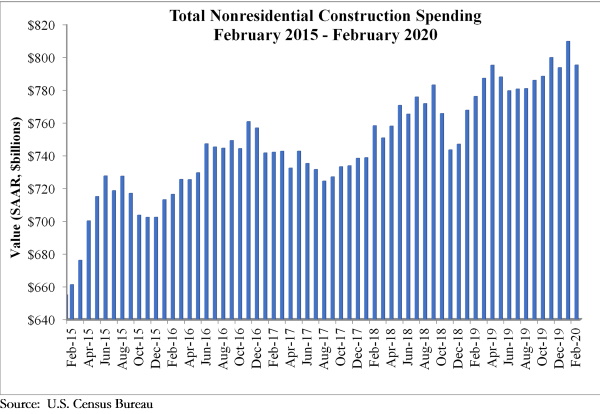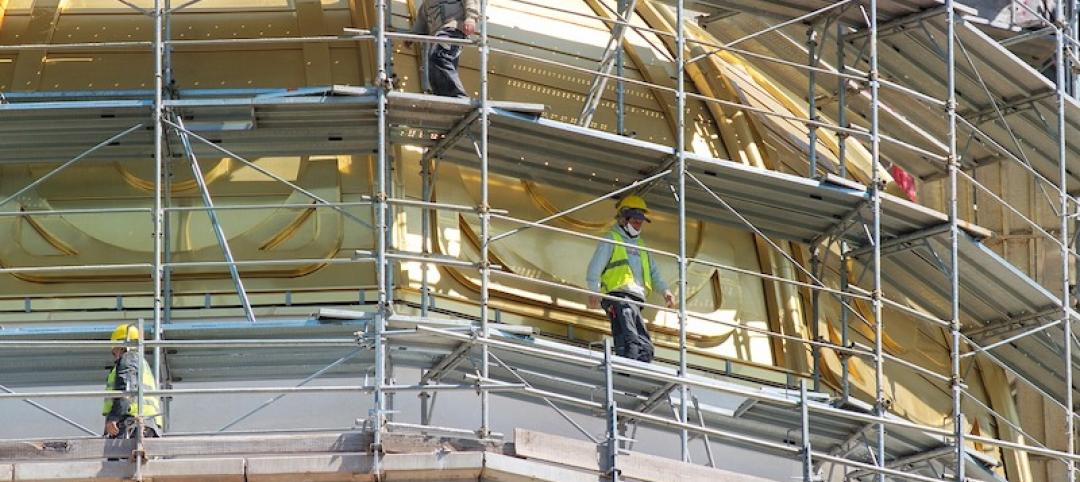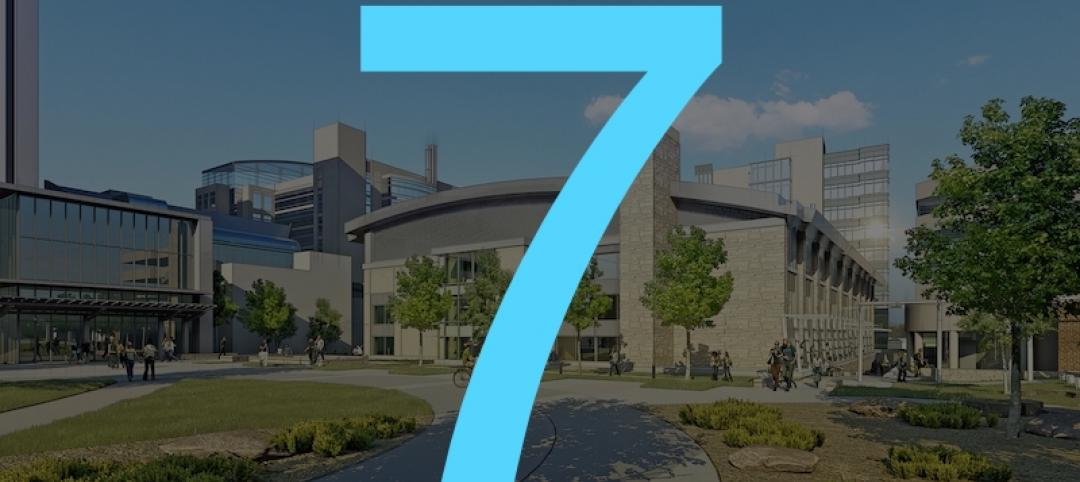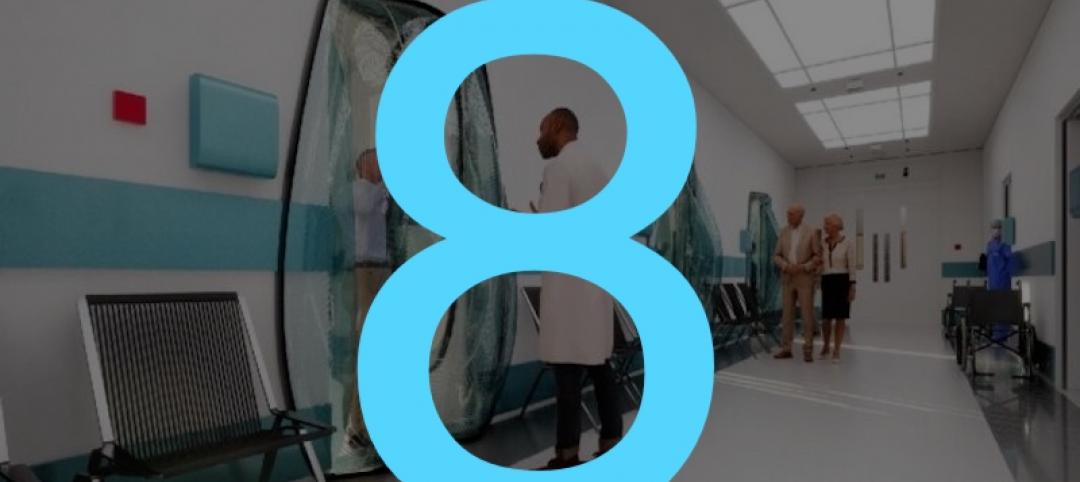National nonresidential construction spending fell 1.8% in February, but is up 2.5% compared to the same time last year, according to an Associated Builders and Contractors analysis of data published today by the U.S. Census Bureau. On a seasonally adjusted annualized basis, spending totaled $795.1 billion for the month.
Private nonresidential spending declined 2% on a monthly basis and is down 0.7% compared to February 2019. Public nonresidential construction spending was down 1.5% for the month, but is up 7.2% on a year-over-year basis.
“Data characterizing the economy prior to the coronavirus outbreak continues to trickle in,” said ABC Chief Economist Anirban Basu. “While nonresidential construction spending declined in February, according to today’s data release, the decline was modest and overall performance was not substantially different from prior months.
“However, with communities in Massachusetts, Pennsylvania, California and elsewhere recently shutting down certain construction projects in an effort to better support social distancing and with economic activity generally grinding toward a halt, the construction spending data will undoubtedly deteriorate further and faster during the months to come,” said Basu. “Unfortunately, that is not where the pain will end. Once the crisis is over, hotel chains will be weaker financially, more storefronts will be empty and fewer employers will be interested in relocating to high-end office space, which will result in diminished demand for nonresidential construction services even after the broader economy comes back to life.
“Typically, nonresidential construction holds up better during the early stages of a downturn as contractors continue to work through their collective backlog, which stood at 8.9 months in January 2020, according to ABC’s Construction Backlog Indicator,” said Basu. “That may still be the case, but, given growing liquidity and solvency problems spreading through the economy, it is quite likely that many construction projects presently on the drawing board will be postponed or canceled. Backlog may disappear quickly as project owners resort to the use of force majeure clauses or other mechanisms to back out of contractual obligations. Time will tell, and eventually the extent to which projects are delayed will be reflected in the construction spending data.”
Related Stories
Market Data | Jun 30, 2020
329 metro areas added construction jobs in May
Seattle-Bellevue-Everett, Wash. added the most construction jobs (28,600, 44%) in May.
Market Data | Jun 29, 2020
6 must reads for the AEC industry today: June 29, 2020
HQ tower features gardens on every floor and the head of Hilton talks about how his business will survive.
Market Data | Jun 26, 2020
5 must reads for the AEC industry today: June 26, 2020
Restoration of 1930s El Paso hotel completes and Arc offers tools, analytics for safe workplace re-entry.
Market Data | Jun 25, 2020
Commercial Construction Index drops amid Coronavirus pandemic, but contractors poised for near-term recovery
Contractors quickly prioritized worker health and safety, and 1 in 3 plan to hire more workers in the next 6 months.
Market Data | Jun 25, 2020
7 must reads for the AEC industry today: June 25, 2020
CDC to build the most advanced high containment laboratory in the country and architecture billings downward trajectory moderates.
Market Data | Jun 24, 2020
Architecture billings downward trajectory moderates
AIA’s Architecture Billings Index (ABI) score for May was 32.0 compared to 29.5 in April, but still represents a significant decrease in services provided by U.S. architecture firms.
Market Data | Jun 24, 2020
8 must reads for the AEC industry today: June 24, 2020
San Francisco's apartment market goes in reverse and WATG designs a solution for isolating without sacrificing social connectivity.
Market Data | Jun 23, 2020
National survey reveals pandemic's impact on college students' mental health, remote learning, families' income and more
Of 2,500 student respondents, 75% feel more anxious or stressed, 57% said they lost their summer jobs and 90% want to return to campus in the fall.
Market Data | Jun 23, 2020
7 must reads for the AEC industry today: June 23, 2020
Gyms are going bacnkrupt and leaving gaps in shopping centers and how hotels are trying to keep guests and employees safe.
Market Data | Jun 22, 2020
New House infrastructure package will provide needed investments in aging infrastructure, support economic recovery, and create jobs
The Moving Forward Act’s proposed $1.5 trillion in new investments will improve range of public infrastructure, creating needed demand for construction while making the economy more efficient.



















